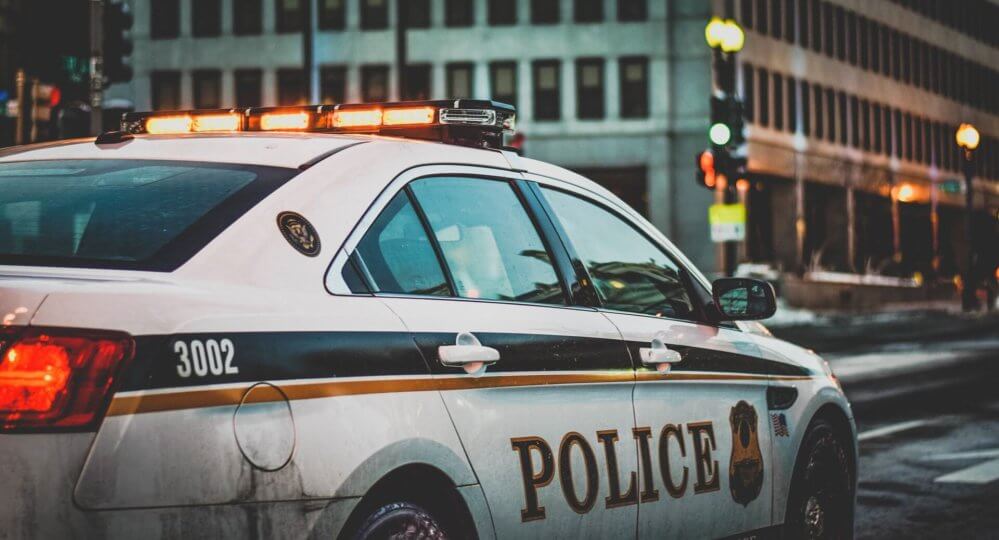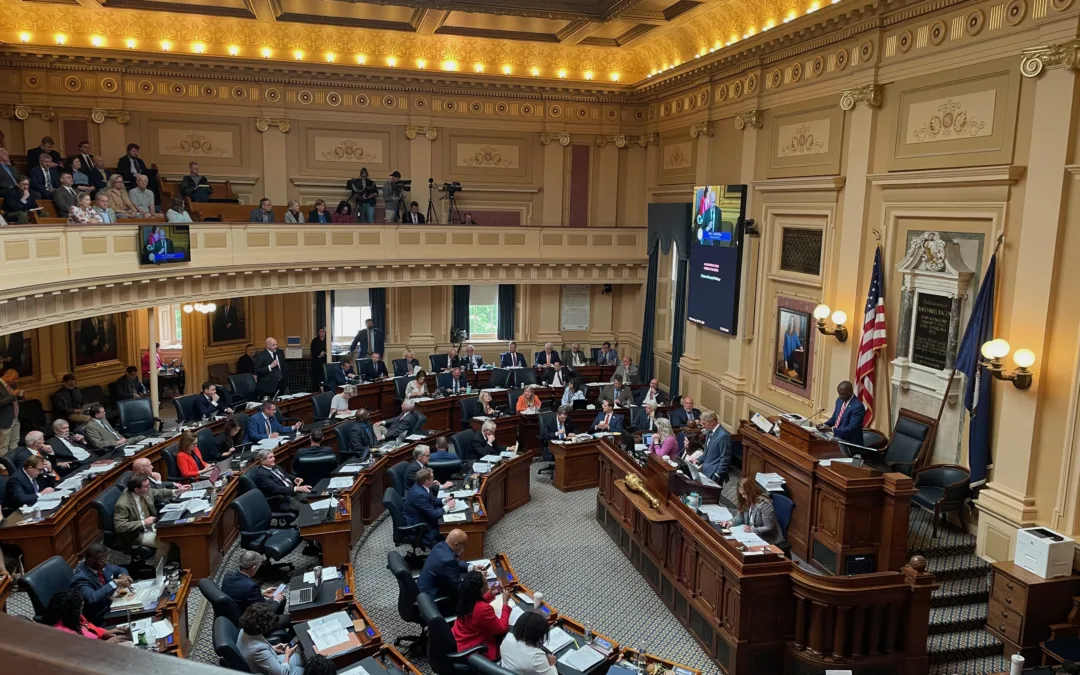
Police brutality is linked to systemic racism, Qasim says. In order to solve the problems, we have to address both.
In Fairfax County, prosecutors want a judge to throw out 400 convictions fraudulently obtained over 3 years through officer Johnathan Freitag. Data breaches show Norfolk Sgt. William Kelly, executive officer of the police dept.’s internal affairs unit, donated $25 to Kyle Rittenhouse. He included the note, “God bless. Thank you for your courage. Keep your head up. You’ve done nothing wrong. Every rank and file police officer supports you. Don’t be discouraged by actions of the political class of law enforcement leadership.”
Just to remind everyone, Kyle Rittenhouse stands accused of using an illegal firearm, killing two people and repeatedly breaking parole. A judge ordered him to stop fraternizing with white supremacists. And then there’s the situation in Windsor.
In Windsor, officer Joe Guttierez held a Black & Latino Army lieutenant named Caron Nazario at gunpoint. The reason? Nazario allegedly didn’t have license plates on his brand new car. When Lt. Nazario confessed, “I’m honestly afraid to get out,” Officer Guttierez responded, “Yeah, you should be.” Gutierrez then pepper sprayed, beat, and handcuffed Lt. Nazario.
Police Brutality is a Nationwide Issue
Across the country, Chicago police murdered 13 year old Adam Toledo, an unarmed teen, even as he complied and put his empty hands up. Last week Minnesota police murdered Daunte Wright, who was unarmed and pulled over for an alleged “rear view mirror” infraction. Officer Kim Potter shot and murdered him at point blank range, incredibly claiming she mistook her service weapon for a taser. This murder occurred less than 10 miles from where Derek Chauvin killed George Floyd in 2020. It also occurred less than 10 miles from where Officer Jeronimo Yanez killed Philando Castile in 2016.
Meanwhile, last week in the same area where police killed Daunte Wright, George Floyd, and Philando Castile, a 61-year-old white man assaulted a retail worker, rammed into a cop car, violently assaulted another officer and hit him in the head with a hammer. Then he sped away with a police officer hanging on for dear life to the side of his truck. The 61-year-old white man wasn’t shot, tased, or harmed. He was later arrested without a scratch on him.
We Have Multiple Problems
Let me be clear. Nobody wants police brutality of any kind. Nobody wants police killing white people or any person in America. Indeed, we all remember the horrifc police murder of Daniel Shaver, an unarmed white man whom police shot dead as he sobbed and begged for mercy on a motel floor.
This is about ending the dual cancers of systemic racism and systemic police brutality, both of which are exacerbated by the militarization of our police. The zero tolerance policies of the 1990s, supported by Democrats and Republicans alike, poured billions of dollars into militarizing local police. They overpoliced and overcriminalized Black and brown neighborhoods, while doing nothing to actually decrease crime or the prison population.
In fact, zero tolerance policing made things demonstrably worse. Today, no developed country in the world suffers police violence even remotely to the levels that Americans suffer. And the difference is staggering. For example, the average number of civilians annually killed by police in Norway and Iceland is zero. In New Zealand it is one. Japan meanwhile averages two. In the United Kingdom and the Netherlands it is 3 and 4, respectively. In Germany, Australia, and Canada it is 11, 21, and 34, respectively.
Meanwhile, in the United States the average number of civilians annually killed by police is 1100. Yes, 1100. Even accounting for population differences, Americans are 330% more likely to die at the hands of police as are our Canadian neighbors.
Racism Compounds The Situation
Systemic racism further compounds the situation. Systemic racism is when white people are 2.1 times more likely than Black people to be armed—yet police are 3.23 times more likely to kill Black people than white people. It is when Black people are pulled over by police up to six times as much as white people. Remember Officer Freitag, who fraudulently secured 400 convictions in Fairfax County over the past three years? Prosecutors report that, “Freitag admitted to a third party to engaging in racial profiling in determining which motorists to stop.”
Moreover, study after study after study from universities and from both conservative and liberal think tanks show that militarization of police does not protect police or communities. Instead, it increases distrust between police and the communities they serve.
It also does not decrease violent crime. Therefore, the conversation on public safety must necessarily include deburdening the police from responsibilities they’re not trained for—mental health treatment, students in school, addiction response, family issues, and homelessness, among others—as well as recognizing that most situations are not improved by inserting a person with a firearm and authority to use lethal force.
Consider This
For example, misdemeanor traffic violations for an alleged rear view mirror infraction should not necessitate an officer with a firearm authorized to use lethal force. Or perhaps remove police completely from vehicle violations which do not endanger other drivers.
While the George Floyd Justice in Policing Act is a critical first step towards public safety, we must reimagine public safety not simply by reforming police—but by reimagining policing altogether. That reimagination must both deburden police officers from responsibilities outside of their scope, and instead fund social welfare programs to effectively address mental health, addiction, family issues, the needs of school children, homelessness, and more.
All parties involved would benefit from this. It would increase public safety, decrease crime, make the lives of police officers safer, and make our nation less violent and more free. This is what the data and facts tell us. It’s time we stopped tinkering around the edges and truly built a future dedicated to equal justice and equal access for all people.
Qasim Rashid is a human rights lawyer, author, and Truman National Security Project Fellow. Follow him on Twitter @QasimRashid.
Politics

Youngkin, Democrats to start over on budget talks
The Republican governor stood with Democratic leaders in the General Assembly on Wednesday in a bid to ease tensions over their budget debate....

VIDEO: Domestic abuse victims speak out against the gun law bills Gov. Glenn Youngkin vetoed
Senate Bill 47 and House Bill 46 aim to close the loophole that allows offenders to transfer their firearms to someone else instead of relinquishing...
Local News

Virginia verses: Celebrating 5 poetic icons for National Poetry Month
There’s no shortage of great writers when it comes to our commonwealth. From the haunting verses of Edgar Allan Poe, who found solace in Richmond's...

Join the fun: Recapping Family Literacy Night’s storybook adventures
When’s the last time you read a book aloud with a loved one? If it’s difficult to answer that question, then maybe it’s time to dust off that TBR...




